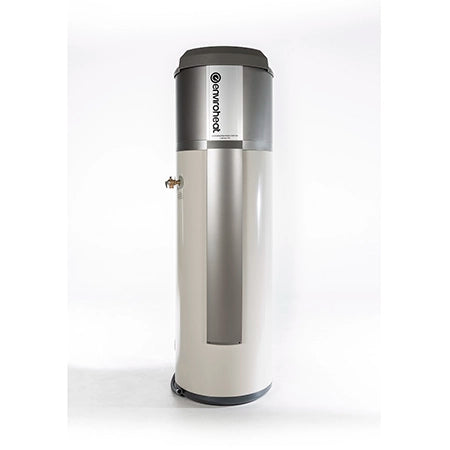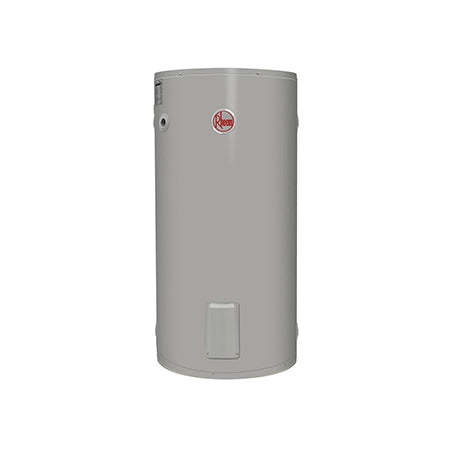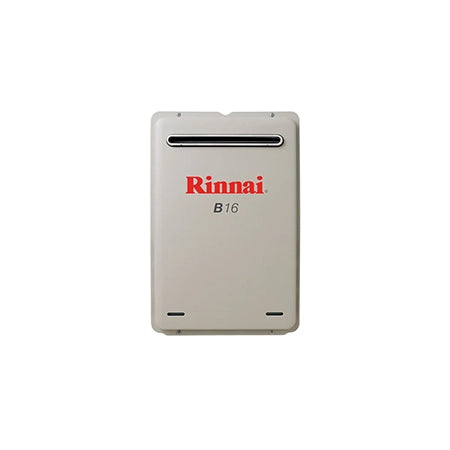Top Filter Water Tap Options for Clean Drinking at Home
If you’re questioning the purity of your home’s tap water, a filter water tap might be your best defense. These systems empower you to enhance taste and safety with minimal fuss. Our guide examines the types of filter water taps, their operation, and the tangible health benefits they offer. Plus, we include practical advice on choosing, installing, and maintaining the filter water tap that aligns with your home and health goals.
Key Takeaways
-
Filter water taps are integral fixtures designed to deliver clean, filtered water straight from the kitchen faucet, trapping contaminants like chlorine, sand, and rust through cartridges.
-
A variety of filter water tap systems are available such as mixer taps with built-in filters, countertop, and under-sink systems, offering flexibility based on space and purification needs.
-
Regular maintenance of filter water taps, particularly replacing filter cartridges as per manufacturer guidance, is essential to ensure long-lasting functionality and clean water supply.
Understanding Filter Water Taps
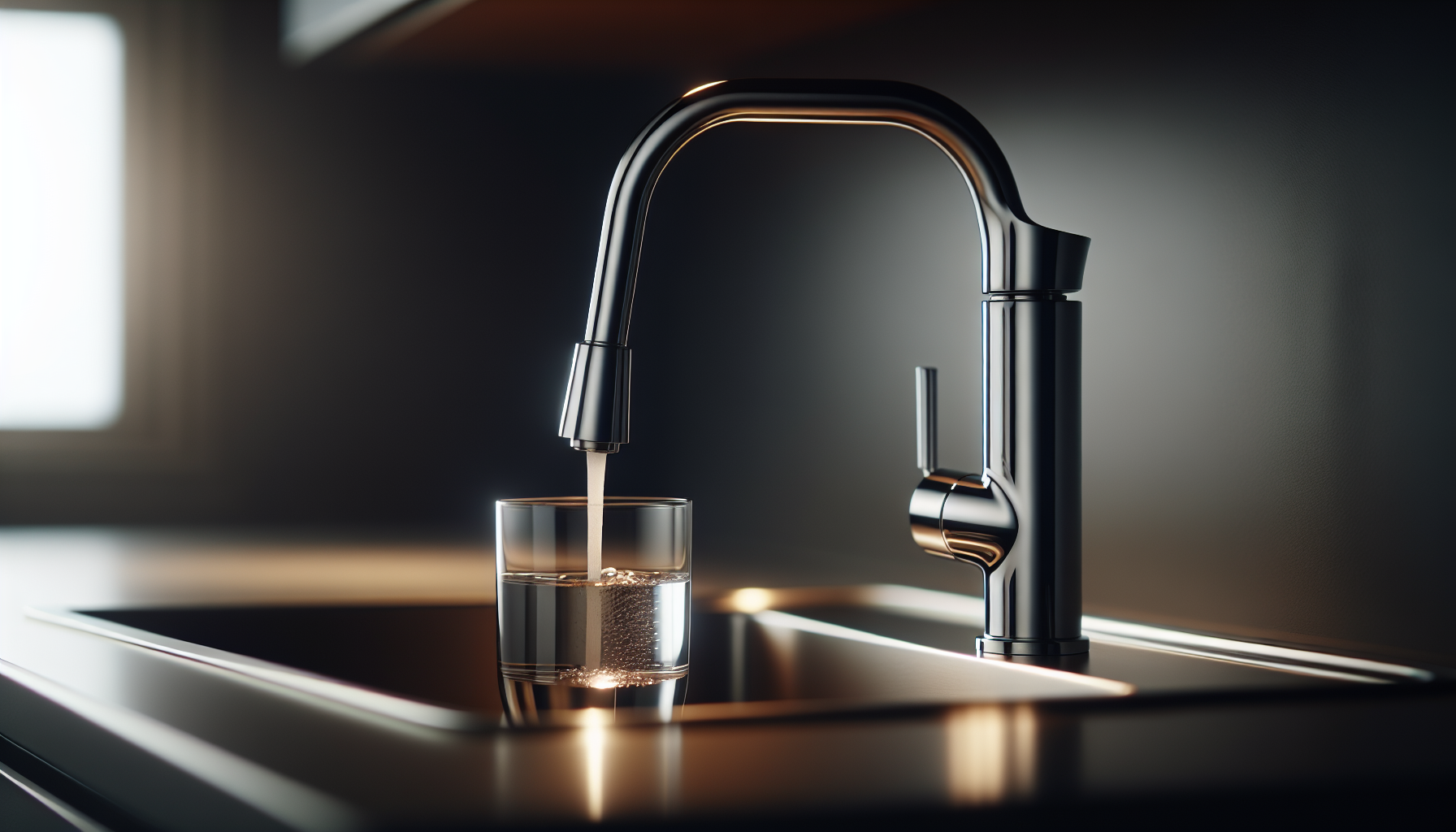
Filter water taps primarily serve to deliver clean, filtered water directly from your kitchen faucet. These devices are designed to address potential concerns about contaminants in your drinking water. The filter cartridges within the taps serve as a shield, ensuring that the water you consume is free from impurities that could impact your well-being. These cartridges trap elements such as chlorine, sand, and rust, significantly enhancing the taste and quality of your water.
A water filter system is a worthwhile investment that not only enhances your water quality, but also contributes positively to your entire home environment. Whether you are filling up a glass for a refreshing drink or boiling water for cooking, the peace of mind that comes with knowing your water is free from harmful impurities is invaluable.
Having explored what filter water taps are and their significance, it’s time to examine their functioning.
How Filter Water Taps Work
Central to every filter water tap is a cartridge that constantly operates to cleanse your water. The water from your mains supply is forced through this cartridge, and as it flows through, impurities are trapped within the filter. These particles can be as small as 1 to 5 microns in size, which is significantly smaller than the thickness of a human hair!
The result is nothing short of impressive. Every time you open your tap, you are greeted with water that not only tastes better but also looks clearer. This magic happens in real-time and requires no additional waiting time or steps. Just open the tap, and voila, filtered water at your command!
Benefits of Filter Water Taps
Filter water taps are more than just a fancy addition to your kitchen. They come with a host of benefits that extend beyond improved taste. For starters, filtered water is safer. It eliminates harmful contaminants like:
-
giardia
-
cryptosporidium
-
bacteria
-
microplastics
-
metals
These are contaminants that even boiling water cannot remove, making filter water taps an essential addition to any household concerned about their water quality.
But the benefits don’t stop there. Using a filter water tap is also:
-
Economical
-
Environmentally friendly
-
Cuts down on the costs associated with buying bottled water
-
Reduces plastic waste
-
Provides immediate access to filtered water, promoting increased hydration
-
Can even reduce the consumption of sugary beverages.
In a nutshell, investing in a filter water tap is a step towards a healthier lifestyle and a cleaner planet.
Types of Filter Water Tap Systems
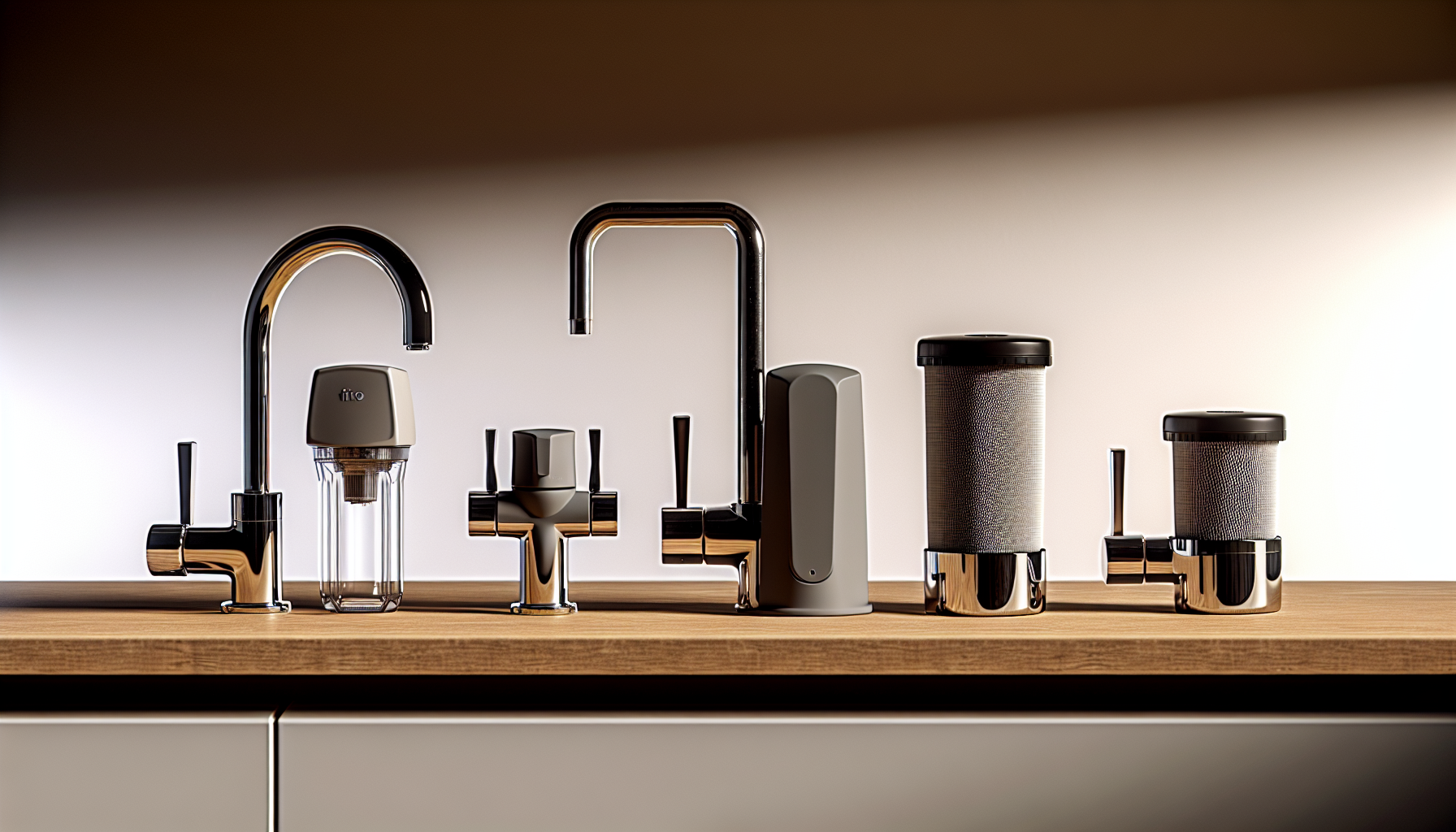
The variety of filter water tap systems parallels the multitude of water filter types. These include:
-
Portable bottle filters
-
Mixer taps
-
Countertop filters
-
Under-sink systems
These systems contain a small cartridge that easily connects to the sink and faucet, offering flexibility for homeowners to choose a filtration system that suits their space and specific water purification needs.
The selection of an appropriate filter water tap system hinges on your specific requirements and the space you have at disposal. For instance, if you have limited counter space, an under-sink system might be the best fit. Conversely, if you want a system that offers hot, cold, and filtered water all in one, a mixer tap with a built-in filter would be perfect.
Let’s examine each of these types more closely.
Mixer Taps with Built-in Filters
Mixer taps with built-in filters are an all-in-one solution that dispenses hot, cold, and filtered water through a single tap. These taps are designed to seamlessly integrate with most kitchen sink setups, and their installation often includes a designer faucet, the water filter itself, and necessary plumbing fittings. The result is a space-efficient solution that eliminates the need for a separate filtration unit.
The benefits of these mixer taps extend beyond mere convenience. They also come in a variety of finishes, catering to diverse kitchen styles. Whether you prefer a high loop or L-shape design, a chrome, or matte black finish, there’s a mixer tap with a built-in filter to match your kitchen aesthetics. Besides, their integrated design means reduced maintenance and cost savings as it reduces the frequency of filter replacements and eliminates the need for additional filtration systems.
Countertop Filter Systems
Countertop filter systems are the epitome of convenience. These systems are designed to:
-
Save space
-
Provide a constant supply of fresh, clean water
-
Suitable for small kitchens or office spaces
-
Eliminate the need for storing water bottles
-
Can be connected directly to the faucet via an adapter, making installation a breeze.
These on-tap water filters:
-
Connect directly to the existing faucet system
-
Provide easier access to filtered water
-
Are a perfect choice if you are looking for a space-saving solution that offers the convenience of instant access to filtered water.
Under-Sink Filter Systems
For those who prefer a more concealed option, under-sink filter systems are an excellent choice. These systems:
-
are installed beneath the kitchen sink
-
deliver a continuous supply of filtered water without compromising your kitchen’s aesthetic
-
connect to the cold water line
-
can remove various contaminants through multiple stages of filtration
-
offer a comprehensive solution for water purification.
What’s more, the installation of under-sink filter systems is quite versatile. They can be installed horizontally or vertically, allowing for optimal use of available space without the need for cabinet modifications. It’s a perfect choice if you want a high-performing water filter system that stays out of sight and out of mind.
Popular Water Filter Brands for Your Kitchen Tap
With the increasing demand for clean and safe drinking water, numerous brands have emerged, offering a variety of water filter systems. Some of the popular names in Australia include:
-
Puretec: known for its stylish range of on-tap water filter faucets suitable for kitchens, offices, and worksites
-
Raymor: offers a wide range of water filter systems for residential and commercial use
-
Oliveri: known for its high-quality stainless steel water filter systems
-
Peppy: provides a versatile 4 in 1 tap solution that dispenses filtered boiling, chilled, and ambient water
Each brand boasts unique offerings that cater to different needs.
Given the plethora of choices, selecting the right brand can seem daunting. This is where a brand comparison can come in handy, helping you identify the best fit based on your needs and preferences. Let’s explore this aspect further.
Brand Comparison
When comparing brands, it’s important to consider factors such as filter capacity, filtration levels, and lifespan. For instance, Billi’s water filters have a substantial capacity, capable of reducing chlorine for up to 30,000 litres of water. They also provide several filter replacement options catering to different needs, such as the 5 Micron Fibron X for standard premium filtration, the 0.2 Micron Fibron XC for superior filtration levels, and the HSD Fibron XT for a balance between filtration effectiveness and water flow.
Billi also offers a high-capacity, cost-effective option with the Pre-Filter Replacement Filter. It has a lifespan of 37,000L and a robust 6.5 Lpm flow rate, making it an excellent choice for both homes and small businesses.
This comparison provides a glimpse of the possibilities available. However, choosing the right brand ultimately comes down to individual needs.
Choosing the Right Brand for Your Needs
The selection of an appropriate brand for your water filter system involves evaluation of aspects like filtration abilities, aesthetics, and harmonization with existing kitchen fixtures. Remember, the best brand for you is one that meets your specific needs and budget. Do you need a system that filters out specific contaminants? Is design important to you? Do you want a system that matches your existing kitchen faucet or are you open to a complete overhaul?
It’s also important to consider the brand’s reputation and customer reviews. This can provide insights into the product’s performance and the company’s customer service, helping you make an informed decision. Investing in a water filter system is a significant decision, so take your time to research and choose wisely.
Maintaining Your Filter Water Tap System
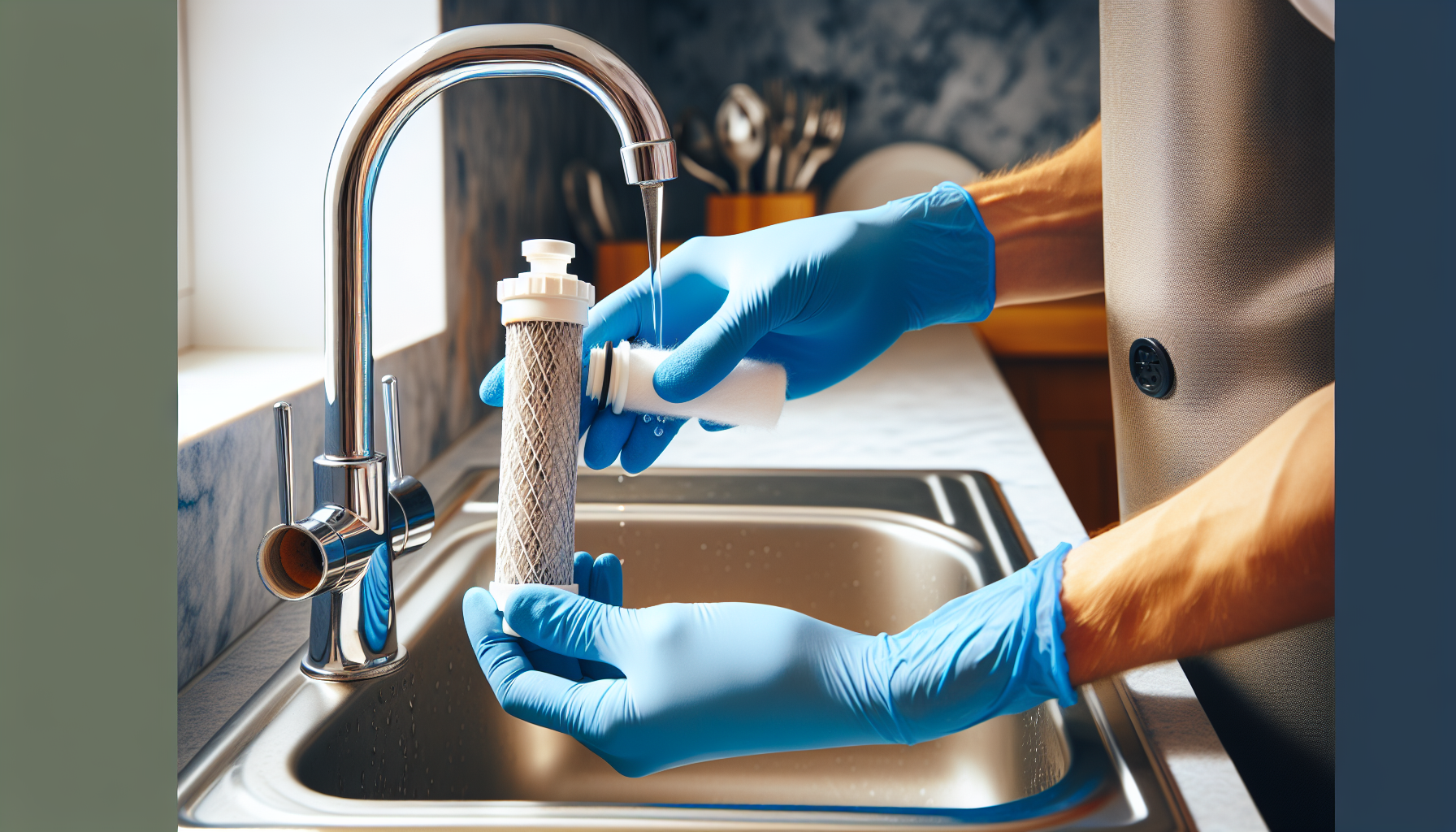
Following the installation of your filter water tap system, it’s important to maintain it regularly for a prolonged and efficient operation. While pressurized filter systems require minimal maintenance, you’ll need to change the filter cartridges a few times a year. Regular maintenance not only ensures lasting functionality of the system but also prevents the presence of harmful chemicals or pathogens in your water supply.
Monitoring changes in water pressure and flow can serve as an early indicator for identifying potential maintenance or repair needs. Moreover, annual professional inspections and maintenance are advised to spot and rectify issues promptly, which contributes to the overall longevity and efficient performance of filter water tapsystems.
Now, it’s time to delve into the specifics of system maintenance, beginning with cartridge replacement.
Replacement Cartridges
The filter cartridge is the heart and soul of your water filter system, and it requires regular replacement for your system to function efficiently. It’s recommended to replace the filter cartridge according to the manufacturer’s recommendations or the advice of a water filtration specialist. Typically, sediment filters need to be replaced every 3-6 months, while activated carbon filters should be replaced every 6-12 months, depending on water quality and usage.
Some steps to follow when replacing a filter cartridge are:
-
Ensure that the water supply is turned off and the pressure in the system is released.
-
Unlock and remove the old cartridge.
-
Clean the filter housing.
-
Install the new cartridge according to the manufacturer’s instructions.
-
Prime the new cartridge.
-
Check for leaks and proper flow rate after re-engaging the water supply.
Cleaning and Maintenance Tips
While replacing cartridges is a crucial part of maintenance, it’s not the only task. Regular maintenance of your filter system should also include:
-
Cleaning the filter housing to prevent clogging and maintain system performance
-
Removing any organic matter accumulation in water filters to prevent the growth of biofilms, which can impair system efficiency and water quality
-
Keeping the area around the filter system clean to avoid dirt and debris accumulation
By following these maintenance tasks, you can ensure that your filter system continues to function effectively and provide clean water.
Checking the filter system regularly for leaks or damage is another crucial aspect of maintenance. Lastly, when it’s time to dispose of used filters, it’s important to adhere to local recycling guidelines to minimize environmental impact.
Regular filter maintenance not only ensures the longevity of your system but also guarantees that you’ll continue to enjoy safe, clean, and delicious water.
Matching Your Filter Water Tap with Kitchen Appliances and Accessories
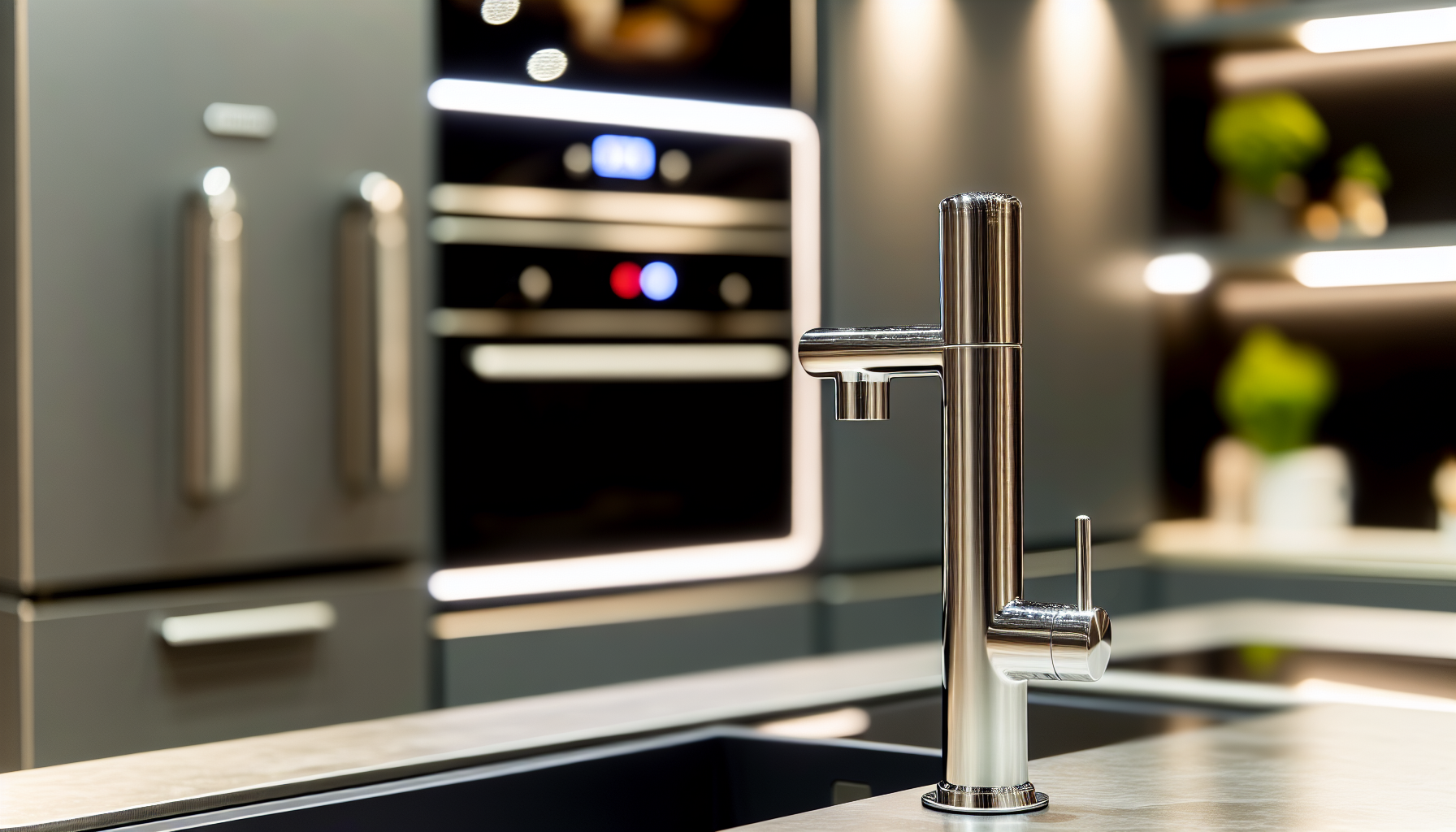
A water filter taps is not only a functional addition to your kitchen but can also enhance its aesthetic appeal. The key is to choose a tap that matches your kitchen appliances and accessories. For instance, the Fleta Brushed Stainless Steel 3 Way Filter Water Tap accommodates under-sink water filter systems while complementing the sleek design of modern kitchens.
If you want a cohesive kitchen color scheme, custom powder coating is available for those seeking a unified look. However, if you don’t wish to alter your existing kitchen faucet, you can opt for a separate filter tap, providing a dedicated outlet for filtered water. Either way, matching the style of the water filter faucet with other kitchen fixtures contributes to a harmonious kitchen design.
Installing Your Filter Water Tap
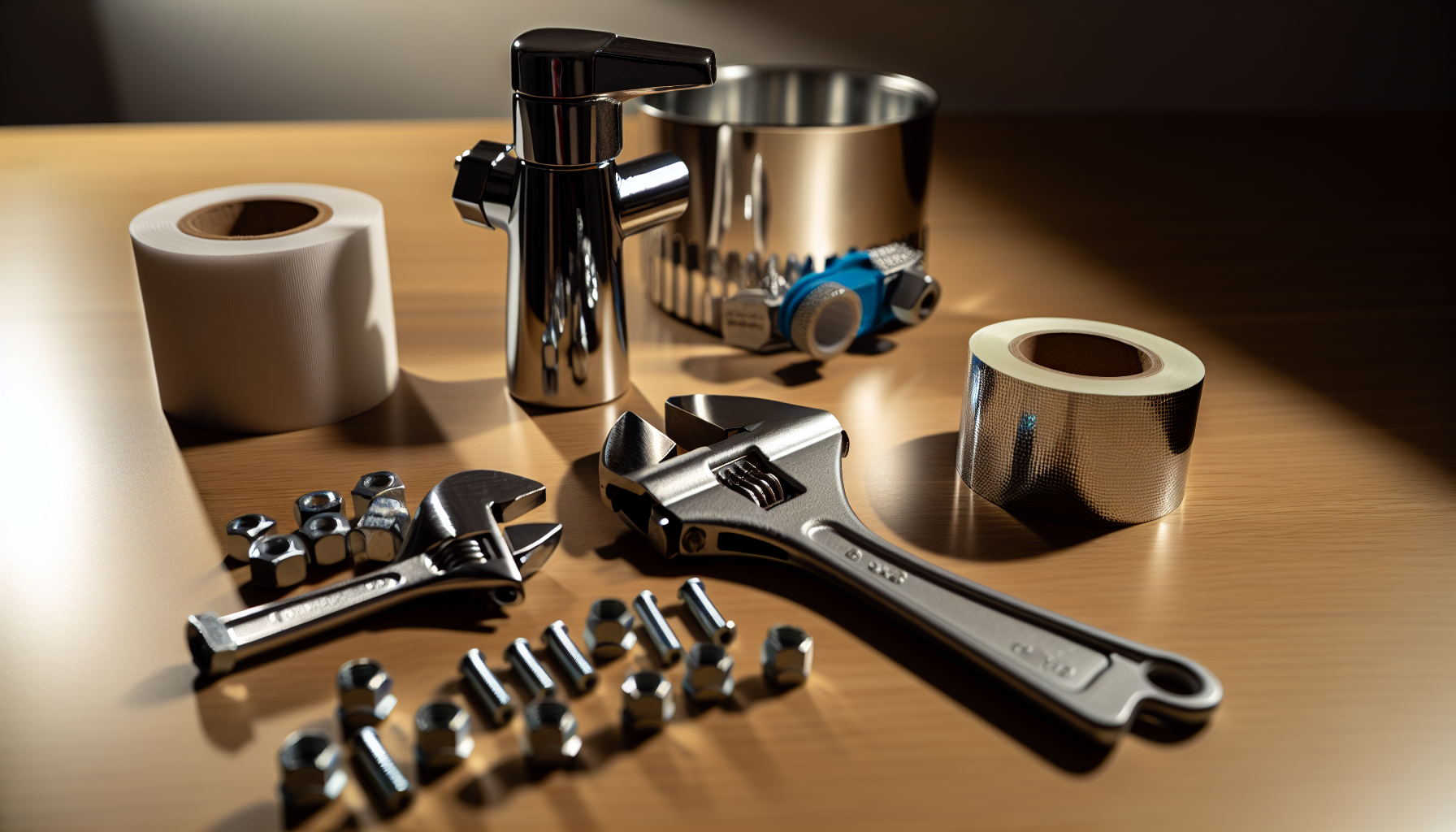
While the installation of a filter water tap system may appear intimidating, it’s simpler than anticipated. Most of these systems are designed for straightforward installation, often eliminating the need for a plumber. However, the installation process can vary depending on the type of filter system you choose. Before you begin, ensure you have the right tools and materials for the job.
Bear in mind, the installation of a water filter system involves more than just linking tubes and tightening screws. It’s about ensuring the system functions correctly and safely. Incorrect installation can lead to:
-
leaks
-
reduced water flow
-
system failure
-
potential water damage to your property
So, while it’s possible to install a filter water tap system yourself, it’s always a good idea to consult a professional if you’re unsure.
Tools and Materials Needed
The exact tools and materials required for installation can vary depending on the type of system. However, common items you might need include a wrench for tightening connections, drill bits for creating holes in the sink or countertop, and a saddle valve for connecting to the cold water supply line.
Before commencing the installation, it’s recommended to go through the manufacturer’s guidelines or seek professional advice to make sure you are equipped with all the necessary tools and materials.
Installation Process
The installation process can vary depending on the type of filter system and the specific brand. However, there are some general steps that are usually involved. First, you’ll need to drill a hole in your sink or countertop for the dispenser, if one is not already available. Then, install the cartridge filtration unit under the sink, positioning it between the cold water supply line and the dispenser.
Next, connect the tubing from the saddle valve to the filtration system using compression fittings, and cut the tubing properly to fit. Finally, connect the filtration unit to the water supply line with more tubing and compression fittings, ensuring all connections are secure. Once everything is connected, flush the system for about 5 minutes to ensure clear, taste-free water.
Summary
In conclusion, installing a filter water tap in your home can significantly improve the quality and taste of your drinking water. While there are various types of filter systems and brands to choose from, the key is to find one that suits your specific needs and kitchen design. Regular maintenance, including filter cartridge replacement and system cleaning, ensures the longevity and efficient performance of your system. With a filter water tap, you can enjoy clean, safe, and tasty water straight from your kitchen tap, contributing to a healthier lifestyle and a cleaner planet.
Frequently Asked Questions
Is it worth getting a filter tap?
Yes, getting a filter tap is worth it as it can lead to improved overall well-being by reducing exposure to potential contaminants in tap water, especially for those with health concerns.
What is a filter tap?
A filter tap is a faucet that provides filtered water directly from the tap, thanks to a water filter cartridge installed underneath the sink. It offers convenient access to clean, filtered water at home or work.
How long does a filter tap last?
In general, filter taps in commercial settings should be changed every 4 to 6 months, while those in residential settings should be changed every 6 to 12 months. Reverse osmosis and additional alkalisers have longer lifespans.
Do I need a filter tap?
Yes, installing a filtration system for your tap water can significantly improve its taste and remove any chlorine taste, while also providing instant boiling, chilled, and sparkling water options.
Can you put a filter on a kitchen tap?
Yes, you can put a filter on a kitchen tap by selecting an undersink water filter system designed to integrate with your existing tap, effectively removing contaminants from the water. This will provide your family with safe and great tasting water directly from the tap.



